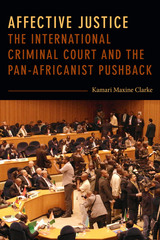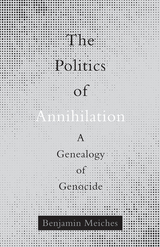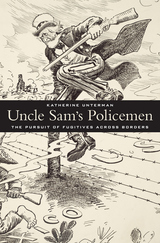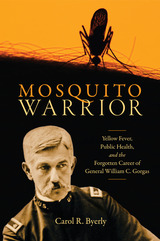

How did a powerful concept in international justice evolve into an inequitable response to mass suffering?
For a term coined just seventy-five years ago, genocide has become a remarkably potent idea. But has it transformed from a truly novel vision for international justice into a conservative, even inaccessible term? The Politics of Annihilation traces how the concept of genocide came to acquire such significance on the global political stage. In doing so, it reveals how the concept has been politically contested and refashioned over time. It explores how these shifts implicitly impact what forms of mass violence are considered genocide and what forms are not.
Benjamin Meiches argues that the limited conception of genocide, often rigidly understood as mass killing rooted in ethno-religious identity, has created legal and political institutions that do not adequately respond to the diversity of mass violence. In his insistence on the concept’s complexity, he does not undermine the need for clear condemnations of such violence. But neither does he allow genocide to become a static or timeless notion. Meiches argues that the discourse on genocide has implicitly excluded many forms of violence from popular attention including cases ranging from contemporary Botswana and the Democratic Republic of Congo, to the legacies of colonial politics in Haiti, Canada, and elsewhere, to the effects of climate change on small island nations.
By mapping the multiplicity of forces that entangle the concept in larger assemblages of power, The Politics of Annihilation gives us a new understanding of how the language of genocide impacts contemporary political life, especially as a means of protesting the social conditions that produce mass violence.

Extraordinary rendition—the practice of abducting criminal suspects in locations around the world—has been criticized as an unprecedented expansion of U.S. police powers. But America’s aggressive pursuit of fugitives beyond its borders far predates the global war on terror. Uncle Sam’s Policemen investigates the history of international manhunts, arguing that the extension of U.S. law enforcement into foreign jurisdictions at the turn of the twentieth century forms an important chapter in the story of American empire.
In the late 1800s, expanding networks of railroads and steamships made it increasingly easy for criminals to evade justice. Recognizing that domestic law and order depended on projecting legal authority abroad, President Theodore Roosevelt declared in 1903 that the United States would “leave no place on earth” for criminals to hide. Charting the rapid growth of extradition law, Katherine Unterman shows that the United States had fifty-eight treaties with thirty-six nations by 1900—more than any other country. American diplomats put pressure on countries that served as extradition havens, particularly in Latin America, and cloak-and-dagger tactics such as the kidnapping of fugitives by Pinkerton detectives were fair game—a practice explicitly condoned by the U.S. Supreme Court.
The most wanted fugitives of this period were not anarchists and political agitators but embezzlers and defrauders—criminals who threatened the emerging corporate capitalist order. By the early twentieth century, the long arm of American law stretched around the globe, creating an informal empire that complemented both military and economic might.
READERS
Browse our collection.
PUBLISHERS
See BiblioVault's publisher services.
STUDENT SERVICES
Files for college accessibility offices.
UChicago Accessibility Resources
home | accessibility | search | about | contact us
BiblioVault ® 2001 - 2024
The University of Chicago Press









